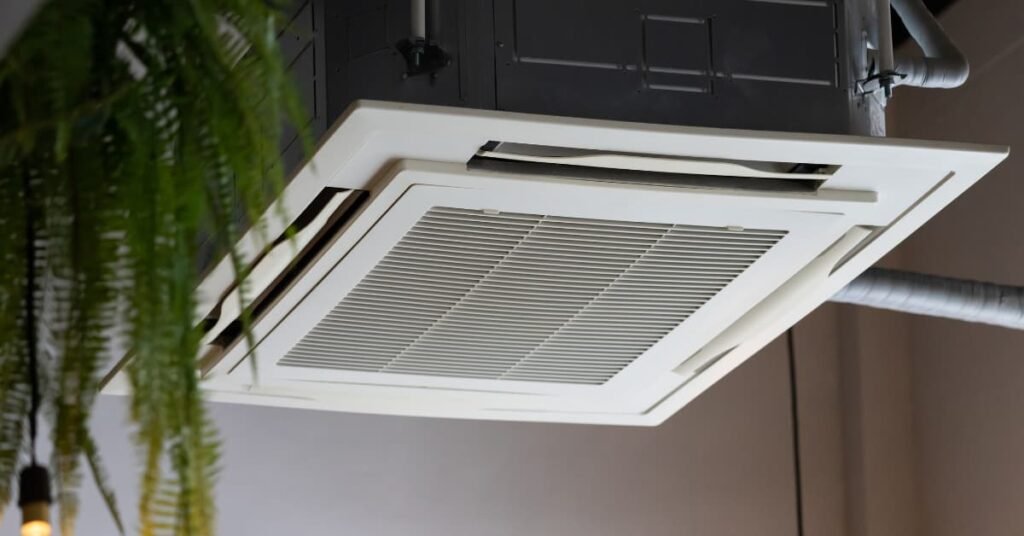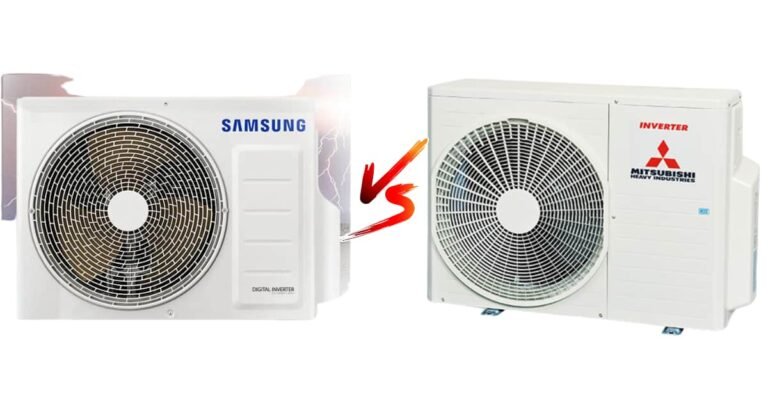What Does Shed Mean on RV AC?
When it comes to RV AC systems, the term “shed” refers to a crucial process for optimal system functionality.
Understanding the meaning of “shed” in the context of RV AC is crucial for RV owners. It directly impacts cooling performance and system efficiency.
By grasping this concept, RV owners can better maintain and troubleshoot their AC systems to ensure a comfortable and enjoyable experience during their travels.
What Does Shed Mean on RV AC?
In RV air conditioning, “shed” means removing heat from the refrigerant to cool the vehicle’s interior.
Heat shedding in RV AC systems is accomplished through several key components. The condenser plays a vital role in dissipating heat. This component allows the refrigerant to release heat to the surrounding environment, thus cooling down the interior of the RV. To facilitate heat dissipation, fans are used to create airflow across the condenser coil.
Efficient heat shedding is essential for optimal cooling performance in RV AC systems. It regulates vehicle temperature, ensuring comfort in hot weather. Proper heat shedding prevents damage to crucial components like the compressor by avoiding excessive strain on the system.
But, there are common issues that can hinder the heat-shedding process in RV AC systems. Dust or debris buildup can clog condenser coils, reducing cooling efficiency by restricting heat dissipation. Faulty fans can disrupt airflow and impair heat-shedding capabilities. Monitoring and maintaining proper refrigerant levels is important, as low levels can affect shedding.
To troubleshoot and maintain efficient heat shedding, follow these practical tips. Regularly clean the condenser coil to prevent blockages and improve heat transfer. Check and replace malfunctioning fans for better airflow and optimal heat shedding. Also, monitor refrigerant levels and promptly address any leaks or low levels to maintain system efficiency.

Importance
Efficient heat shedding in RV AC systems plays a vital role in ensuring optimal cooling performance and prolonging the system’s lifespan. Understanding the importance of efficient heat shedding helps RV owners maintain a comfortable and reliable cooling system.
1. Improved Cooling Performance
Efficient heat shedding enables effective temperature regulation, creating a comfortable environment in hot weather. By removing heat from the refrigerant, the AC system consistently provides reliable cooling throughout the vehicle.
2. Energy Efficiency
Efficient heat shedding enables the RV AC system to operate effectively, reducing overall energy consumption. This leads to lower energy costs and promotes environmentally friendly usage.
3. Prevention of Component Failure
Efficient heat shedding reduces strain on components like the compressor, minimizing the risk of component failure. Proper heat dissipation ensures the condenser coil remains free from blockages or damage, ensuring the system’s longevity.
4. Enhanced Reliability and Durability
With efficient heat shedding, the RV AC system can operate at optimal performance levels for extended periods, enhancing its reliability. By preventing excessive strain, the system experiences less wear and tear on its components.
By prioritizing efficient heat shedding and performing regular maintenance and troubleshooting, RV owners can enjoy improved cooling performance, reduced energy consumption, increased system reliability, and prolonged system durability.
Components Involved
RV AC systems rely on various components working together to provide efficient cooling. Understanding the different components involved is crucial for troubleshooting and maintaining optimal performance.
From the compressor to the condenser and fans, each component plays a vital role in the cooling process. RV owners who familiarize themselves with these components can address issues and ensure a comfortable environment in their vehicles.
1. Condenser
The condenser is a vital component in the heat shedding process of RV AC systems. It plays a crucial role in dissipating heat from the refrigerant, allowing it to cool down.
The condenser coil, located outside the RV, releases heat to the surrounding environment. With efficient airflow facilitated by fans, the condenser coil maximizes heat transfer, ensuring effective cooling inside the vehicle.
Regularly cleaning the condenser coil prevents blockages that hinder heat dissipation and compromise cooling performance.
2. Fans
Fans contribute significantly to the heat shedding process in RV AC systems. They create airflow across the condenser coil, aiding in heat removal. By moving air over the coil, fans enhance heat transfer and increase the system’s cooling efficiency.
Properly functioning and well-maintained fans ensure optimal airflow, preventing heat buildup and improving overall performance.
Regular inspection of the fans ensures they are free from debris and operate smoothly.
3. Compressor
The compressor plays a crucial role in the heat shedding process of RV AC systems. It pressurizes the refrigerant, allowing it to absorb heat from the interior of the RV. By compressing the refrigerant, the compressor prepares it for shedding heat in the condenser.
Proper maintenance of the compressor, including regular inspection and lubrication, ensures its optimal performance.
Monitoring the compressor’s pressure levels is essential to prevent overheating and excessive strain on the system.
Common Issues And Solutions
Efficient heat shedding is essential for optimal cooling performance in RV AC systems. However, several common issues can hinder the heat shedding process.
Understanding these issues and their corresponding solutions is crucial for maintaining a well-functioning RV AC system.
Clogged Condenser Coil
Dust, debris, and contaminants can accumulate on the condenser coil, obstructing heat dissipation. To address this issue, regular cleaning of the condenser coil is necessary. Using a soft brush or compressed air, gently remove the debris to ensure proper airflow and efficient heat shedding.
Malfunctioning Fans
Faulty or improperly functioning fans can disrupt the airflow over the condenser coil, hindering heat dissipation. To resolve this issue, inspect and test the fans regularly. Clean the fans to remove any dirt or debris that may obstruct their operation. If necessary, replace malfunctioning fans to restore optimal airflow and enhance heat shedding capabilities.
Insufficient Refrigerant Levels
Low refrigerant levels can result in inadequate heat transfer and compromised cooling efficiency. To address this issue, monitor the refrigerant levels regularly. Promptly address any leaks or low levels by engaging a professional to recharge the refrigerant and inspect for potential leaks. This ensures optimal heat shedding performance.
Conclusion
Comprehending the meaning of “shed” in the context of RV AC systems is essential for maintaining optimal cooling performance and system longevity. Shedding heat refers to the process of dissipating heat from the refrigerant, ensuring a comfortable temperature inside the RV. By grasping this concept, RV owners can take appropriate measures to ensure efficient heat shedding, such as regular maintenance and troubleshooting.
Understanding empowers RV owners to create a comfortable environment during their travels, maximizing AC cooling efficiency and enhancing their overall RV experience. With proper knowledge of heat shedding, RV owners can enjoy reliable cooling and prolong AC system lifespan.






